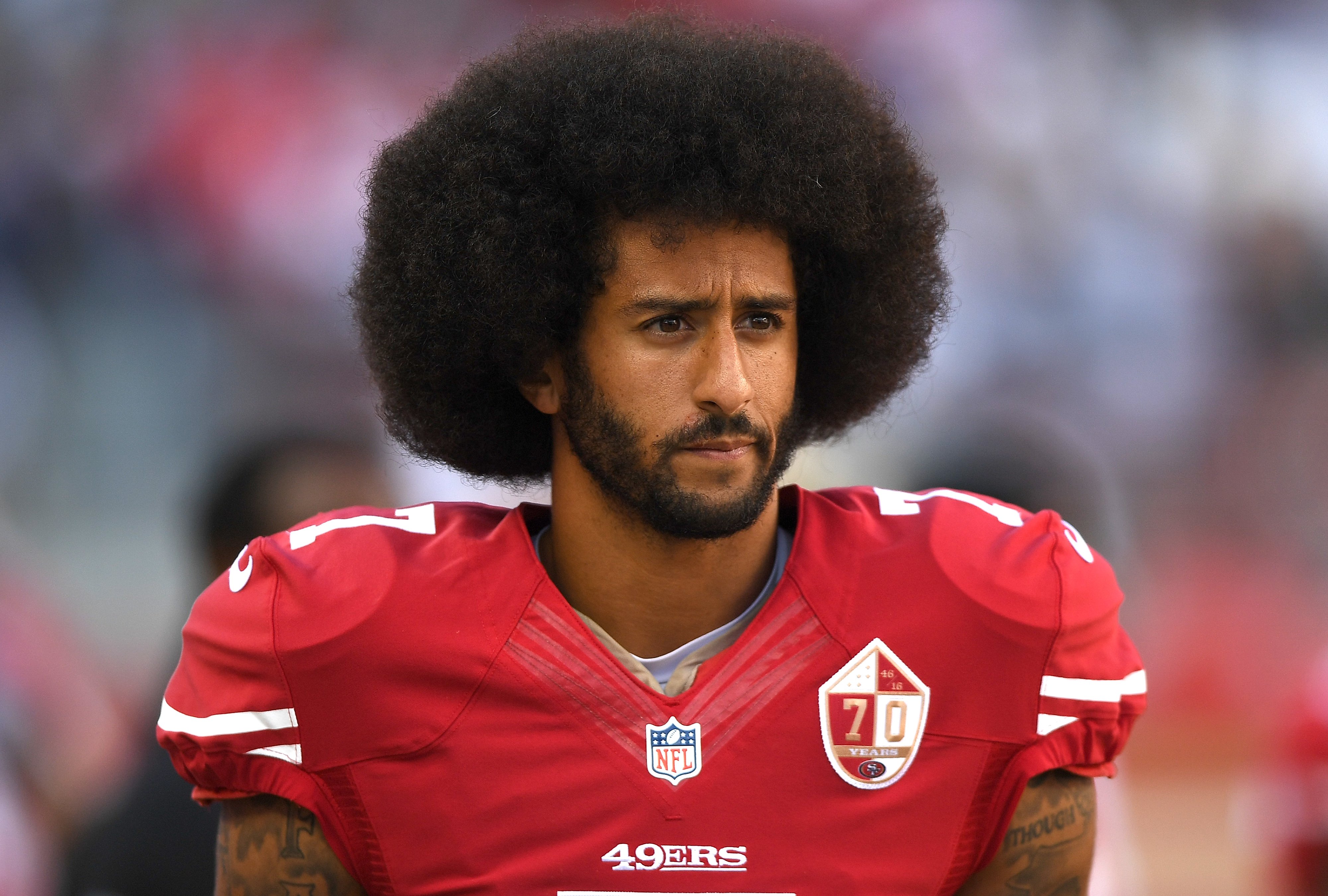Image Credit: [Time]
For recent NFL fans, the name Colin Kaepernick may not ring a bell, however, those who have been watching since 2016 will certainly recognise the name.
Kaepernick was the quarterback that led the San Francisco 49ers to the Superbowl in 2013, losing out the Baltimore Ravens in the final. However, he has not played a snap since Christmas Eve 2016 and not been contracted with a team since March of the following year, where he opted out of an extension with San Francisco.
The main reason for his fame, and infamy, is the movement that he started of kneeling during the national anthem in order to protest the racial injustice of African-Americans in the USA. It started at the 49ers’ third pre-season game of 2016, where he was pictured sitting down during the anthem. He explained his decisions after the game, stating, “I am not going to stand up to show pride in a flag for a country that oppresses black people and people of color. To me, this is bigger than football and it would be selfish on my part to look the other way. There are bodies in the street and people getting paid leave and getting away with murder”.
This evolved into kneeling after a conversation with veteran and ex-NFL player Nate Boyer to better show respect for veterans, with Boyer saying,
“We sorta came to a middle ground where he would take a knee alongside his teammates, soldiers take a knee in front of a fallen brother’s grave, you know, to show respect.”.
After the following pre-season game, the 49ers quarterback clarified the reasons for his protests,
“Once again, I’m not anti-American, I love America. I love people. That’s why I’m doing this. I want to help make America better. That’s why I’m doing this. I want to help make America better. I think having these conversations helps everybody have a better understanding of where everybody is coming from.”.
The US flag and national anthem holds a sacred spot in American society; often being symbols of patriotism, more so that many other countries. The pledge of allegiance directed towards the flag is regularly scheduled in many schools, showing how important that this is in America life.
This partially explains the huge backlash from that he received, being routinely booed at games, some supporters even held protests against him and burnt his jersey; criticising him for disrespecting the country that had given him such success and wealth. Despite this, many people supported his actions, peacefully protesting a very significant problem plaguing America. The split reactions to him kneeling have exemplified the racial divide that is often seen on the news today.

The ownership is much like that of those that occupy CEO positions, older, white and male, with the only the exception out of the 32 teams being the Jacksonville Jaguars’ owner Shahid Khan, who is still older and male.
President Donald Trump even gave his controversial opinion on the matter during a 2017 rally saying “Wouldn’t you love to see one of these NFL owners, when somebody disrespects our flag, to say, ‘Get that son of a bitch off the field right now. Out. He’s fired. He’s fired!’”
These comments prompted many more players to kneel during the anthem, although this appeared to be more of a reaction to Trump rather protesting over the original issue. The NFL and owners originally voiced their support for the players to kneel, but a new rule change this year, voted on by them without consulting the player association, has effectively banned players from kneeling during the anthem, requiring them to stand or stay in the locker room.

His re-entry into the league also seems very unlikely since he has filed a grievance against the league for collusion against signing him. Although this may go to trial, there is a low probability of this succeeding since proof would be required to demonstrate that all 32 owners conspired together not to sign him.
The movement that he will started will still remain in the public eye with his spot on Nike’s 30th year anniversary of their Just Do It slogan and a deal for his own line of merchandise that was announced earlier in September, which prompted some people to burn their Nike apparel. This deal is even more intriguing as the sports company also supply all of the NFL’s teams with their uniform.
Many have drawn comparisons to Rosa Parks’ protest on the bus or Muhammed Ali refusing to be drafted into the army during the Vietnam War. Perhaps like both of them, in time, people will look upon Kaepernick’s actions favourably, being a watershed moment that helped to change the course of history.
Ryan Wan

